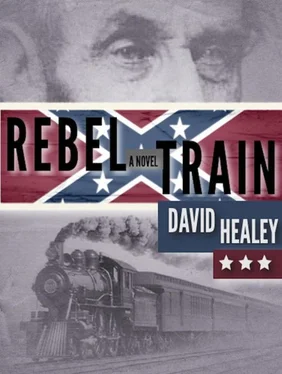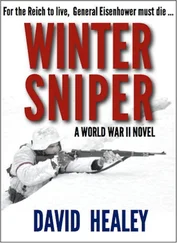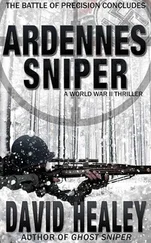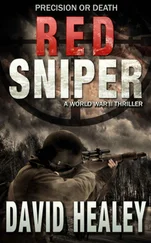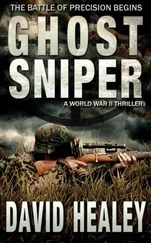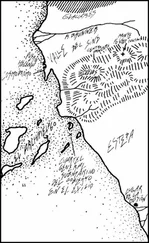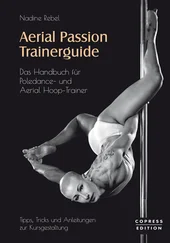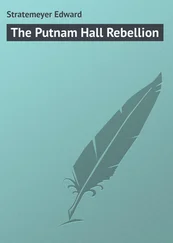“They’ll have to slow down themselves,” Percy said. “By then, we’ll be roaring down the other side.”
“Toward the Monocacy River bridge,” Wilson pointed out. “But if the Yankees have any sense, they’ll have men guarding the crossing. I was hoping we could take on water at Frederick Junction.”
There was nothing to be done about that, Percy knew. They would find out what awaited them at the Monocacy when they reached the river. Meanwhile, they had to outrun whoever was pursuing them.
“Pour it on, boys, pour it on,” Percy said. He turned to cross the tender. “I’ll go pass word that things are about to get hot.”
• • •
Greer spotted the smoke from the Chesapeake . They didn’t seem to be gaining on the raiders, but they weren’t falling behind, either. Top speed for the little Grasshopper engine was maybe thirty miles per hour, which was much slower than the bigger Chesapeake , but far, far faster than the hand car.
“We’ll catch them yet,” Greer said. He was in high spirits for the first time that day. “Nobody steals my train and gets away with it.”
It would give him great satisfaction to see the raiders captured and hanged. He just prayed they wouldn’t wreck his beloved engine first.
Since climbing aboard the old locomotive, Frost and Schmidt were like different men. No longer did Greer need to berate them to continue the pursuit. They were running a locomotive again, an engine of steam and iron and fire, and the men were at home. Suddenly, they were caught up in the excitement of the chase. The Grasshopper wasn’t terribly fast, but Frost and Schmidt knew their business and were wringing every possible bit of speed out of the engine.
“Now we’re moving,” Schmidt said, a grin crossing the big German’s face. “We’ll catch those sons of bitches yet, see if we don’t.”
“And then we’ll stuff ’em in the firebox, right Oscar?” Frost laughed. “We’ll burn their thieving asses.”
“There are always soldiers posted at Frederick Junction,” Greer added, glad that his two companions finally showed some excitement about the chase. After all, they were as tired as he was. “Let’s see them get past those boys.”
Greer knew the Monocacy garrison well enough because his train had passed through many times. There was a full company of infantry stationed at that vital crossing near Frederick. A battery of 12-pound Napoleon guns was trained on the bridge. The crossing was well-guarded, and with any luck, if the soldiers ahead were alert, the train thieves would be stopped, especially if a telegraph message reached the soldiers in time.
He believed the raiders were in a hopeless position. Most eastbound and westbound trains stopped at Frederick Junction to take on wood, water and passengers, along with the odd bit of freight bound for western Maryland or Baltimore. The soldiers would be suspicious if the Chesapeake made no sign of stopping. Of course, the train thieves wouldn’t stand a chance with the sharp-eyed Yankee commander if they did stop. What lay ahead for the raiders, Greer thought with satisfaction, was a double-edged sword.
“We might catch them at Parr’s Ridge,” Schmidt pointed out. “This little engine, she can make the climb faster than they can with four cars.”
Greer smiled and licked his lips, which tasted salty from the sweat he had worked up, first running and them helping to pump the push car in the Chesapeake’s wake. Dimly, it registered that his leg ached from his old wound, but he ignored the pain and kept his eyes on the tracks ahead to where Parr’s Ridge rose in the distance. It was also known as the Mount Airy grade, a sharp ridge in the gently rolling Piedmont plateau stretching from Chesapeake Bay to the western mountains, a hill that ran like a ripple in a blanket across an otherwise flat bed. While the tracks had followed the Patapsco River basin and then Bush Creek west to that point, on the other side they followed the Monocacy River basin to the Potomac River. Parr’s Ridge was the only place where the B&O couldn’t hold to the river grades.
The low, sharp ridge would slow the train racing ahead of them. They were close to catching the raiders now, very close. Greer turned and helped Frost heap wood into the raging firebox, burning now like fury itself.
• • •
The town of Gettysburg had been transformed. Red, white and blue bunting hung from the windows. Union flags flew. Everywhere you looked, houses wore new coats of white wash. It was a far cry from the war-ravaged town of the past summer.
Walking along the streets, the one-eyed man took in the crowds. The official dedication of the new national cemetery was not until tomorrow, but the festival atmosphere already had begun. While there were plenty of prayers and church services planned, the throngs in the streets were looking to forget the war and its horrors for a while. Liquor bottles were in abundance.
“Meat pies! Meat pies here!” called a man, hawking his wares. The savory smell of a gravy-filled pie in a buttery crust made the one-eyed man’s stomach rumble. He bought a pie wrapped in a sheet of newsprint and devoured it on his way to the train station.
Abraham Lincoln was scheduled to arrive later that day, and he wanted to be there when the president came to town. Already, a huge crowd had gathered at the train station. Young boys had climbed trees while their parents waved tiny hand-sewn flags.
Finally, the train came into sight, hugging along the tracks of the Northern Central Railroad that led directly to Baltimore and from there, on to Washington. The crowd grew excited. The one-eyed man was pressed from behind as more latecomers crowded in to catch a glimpse of their president.
When the train did stop in a gout of steam, a tall figure in black and wearing a stovepipe hat appeared. The crowd cheered. The president waved, then moved on to greet the local dignitaries waiting at the station. The one-eyed man watched in surprise.
Abraham Lincoln? He was puzzled. Then he found himself swept up by the crowd as it surged after the president, caught like a twig in a swirling river.
12:30 p.m., Parr’s Ridge, Maryland
Colonel Percy reached the passenger car just as Flynn and Pettibone carried out Charlie Gilmore’s body.
“What the hell is going on?” Percy demanded.
Flynn held the feet and Pettibone carried the corpse by the shoulders, trying not to get any of Gilmore’s blood and gore on his expensive civilian suit of clothes. Gilmore’s eyes stared out from his head, which bumped against Pettibone’s knees.
“We had a mutiny, Colonel,” Flynn explained. “It was bound to happen, and it will happen again as long as we have passengers on this train.”
Flynn and Pettibone balanced on the platform, swung the body between them to give it momentum — once, twice, three times — then launched it far beyond the tracks, where Gilmore’s corpse rolled and flopped down a hillside.
“Goddamnit, Flynn, you’ve got to stop killing the passengers,” Percy said, sounding annoyed.
“I only kill the ones who try to kill me first,” Flynn replied.
“They’ll have us in all the Northern newspapers as a bunch of bloodthirsty killers.”
“Well, they’re sure as hell not going to describe us as heroes in The New York Times,” Flynn pointed out. “We did kidnap their president, after all.”
“We can still conduct ourselves with honor,” Percy said.
Flynn stared at him, surprised. “You really do believe all this business about honor and glory, don’t you? Even after two years of fighting. It’s all moonlight and magnolias to you, isn’t it?”
Читать дальше
